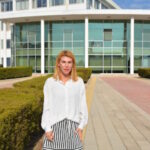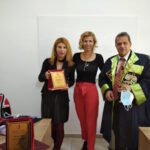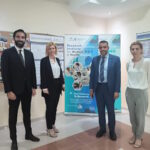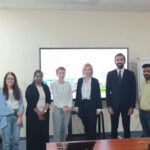
Assoc. Prof. Dr. Berna Uzun, a dedicated academic in the Mathematics Department at the Faculty of Arts and Sciences, Near East University, has made significant contributions to both theoretical and applied mathematics. With her passion for interdisciplinary approaches and innovative solutions, Dr. Uzun has inspired students and researchers alike to challenge conventional boundaries in their work. Her research journey has also led her to work with the Compact Muon Solenoid (CMS) group at CERN, the European Organization for Nuclear Research, where nearly 2,000 physicists and engineers from 37 countries collaborate. As part of this significant project, supported by 155 institutes, Dr. Uzun contributed to recording particles detected during collisions in the CMS detector and processing the resulting data, showcasing her interdisciplinary expertise.Her dedication to advancing knowledge, overcoming challenges, and applying mathematical theories to real-world problems highlights her role as a leader in the field. In this interview, she shares insights into her inspirations, the lessons she has learned throughout her research journey, and her vision for the future of scientific inquiry.
“Failures are stepping stones to discovery. They have taught me patience, resilience, and the importance of valuing the journey as much as the outcome.”
Is there someone in the research world who has inspired you or whom you have taken as a role model? How have they influenced you?
There are many individuals who have inspired me in the research world; however, within my field, the names that have influenced me the most are John Nash, Hypatia, and Lotfi Zadeh.
Nash’s profound contributions to game theory and his resilience in the face of challenges taught me the power of intellectual curiosity and perseverance against adversity. Hypatia’s unwavering commitment to knowledge and teaching during difficult times exemplified the timeless value of learning and sharing. Zadeh’s groundbreaking work on fuzzy logic inspired me to mathematically evaluate uncertainties and push beyond traditional boundaries.
In addition to these inspiring figures, I owe much to all my teachers, colleagues, and especially my advisor Assoc. Prof. Dr. Ersin Kıral, my mentor Prof. Dr. Gülsen Kıral, from whom I learned so much, and my close collaborator Prof. Dr. Dilber Uzun Özşahin. They have motivated me to think deeply, adopt interdisciplinary approaches, and embrace rigorous academic discipline.
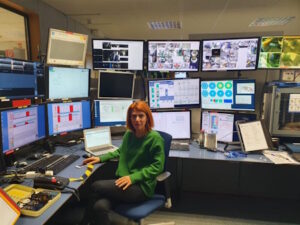
Research is rarely a straight path; rather, it is often filled with unexpected challenges and obstacles. There have been many times when we thought our work was complete, only to start reorganizing everything after encountering a single question. However, I realized that these challenges are often the precursors to new ideas and breakthroughs.
One of the most important lessons I have learned is to see failures as stepping stones to discovery. This understanding has given me patience and resilience. By focusing on learning from each stage of the process, I learned to value not only the outcomes but also the journey itself. This perspective keeps me motivated to stay on course while encouraging flexible and innovative thinking. Learning something at every step has made the research process both meaningful and rewarding for me.
“Interdisciplinary collaboration is key to innovation. By bridging theory and practice, I strive to create solutions that benefit both science and society.”
What scientific achievement or milestone are you most proud of?
One of the milestones I am most proud of is enabling some theoretical approaches in my field to find practical applications. For example, contributing to the development of a decision support system or addressing societal issues through projects has been extremely meaningful to me. Seeing our research touch people’s lives reinforces the importance of the work we do.
During the COVID-19 pandemic, the studies we conducted produced both important and practical outcomes. Observing the direct impact of scientific knowledge and its applications on people’s lives during such a challenging time was an unparalleled experience. This period demonstrated the power and value of science in a tangible way.
Furthermore, beyond my own work, seeing my students excel in their careers and contribute to environmentally conscious projects has been the greatest source of pride and motivation for me.
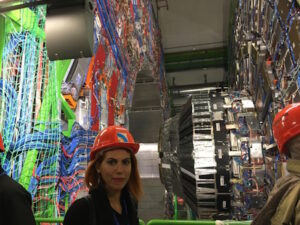
Innovation arises when existing assumptions are questioned, or interdisciplinary perspectives come together. I aim to collaborate with experts from seemingly unrelated fields to identify new applications and, in the process, create novel solutions or frameworks. My goal is not only to advance my field but also to encourage knowledge sharing, helping humanity address complex problems in a more holistic way.
I believe that scientific progress is often achieved not within the boundaries of a single discipline but when those boundaries are crossed. For this reason, I strive to build a bridge between theory and practice in my research. I want my work to have not only academic value but also a concrete impact on society.
Specifically, I aim to pioneer studies in areas such as managing uncertainties, improving decision-making processes, and developing innovative models to address societal problems. I believe these approaches will make meaningful contributions to both the scientific community and everyday life.
As a researcher, how do you deal with challenges such as time management or coping with stress? What strategies have you developed to overcome these difficulties?
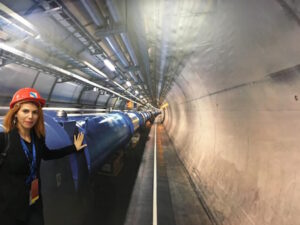
While I avoid getting lost in details, I do have a keen eye for precision and strive to maintain meaningful coherence in my work. I aim to use time flexibly. Often, the time I spend planning to solve a problem exceeds the time required to solve the problem itself. I break projects into small, manageable parts, set realistic deadlines, and make progress daily toward these goals.
To manage stress, I maintain balance by engaging in relaxing activities such as nature walks, listening to classical music, and reading literary works. Focusing on the bigger picture and recognizing that intense periods are temporary make these challenges easier to overcome.
Assoc. Prof. Dr. Berna Uzun’s Biography
In 2009, Berna Uzun graduated from Çukurova University, Faculty of Science and Arts, Department of Mathematics. She then pursued her master’s degree in the Econometrics department, specializing in Operations Research, while also working as a mathematics teacher in secondary schools and high schools. During her master’s studies, she spent a year at Lazarski University in Poland through the Erasmus program and graduated in 2015. She continued her doctoral education in the same field, focusing on Operations Research within the Econometrics department. During her PhD studies, she completed an internship as an assistant to the institute director at the Autonoma de Barselona University through the Erasmus program. She successfully completed her doctorate in 2020. Her master’s and doctoral research primarily focused on fuzzy logic, modeling stochastic processes, their applications to economic problems, and forecasting.
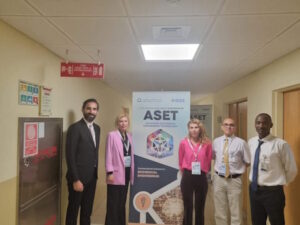
In 2019, she represented Near East University as a technical researcher at CERN as part of a university BAP project and contributed to the CMS experiment. Between 2022 and 2023, she served as a visiting assistant professor at Carlos III University of Madrid.
